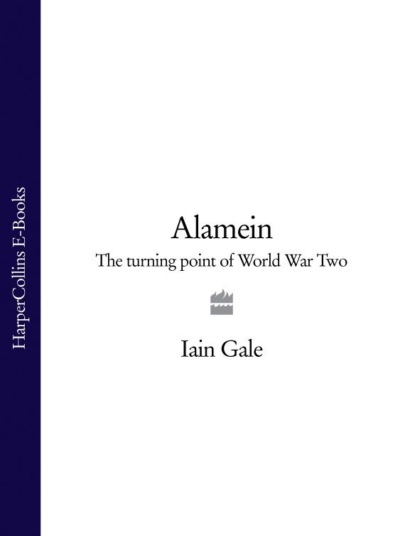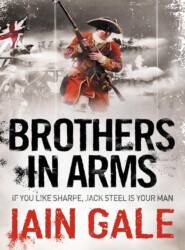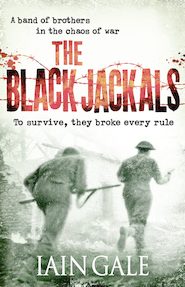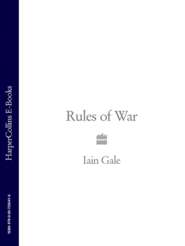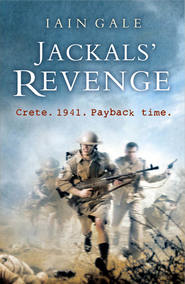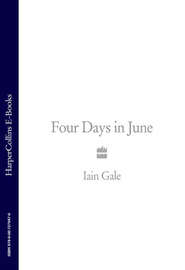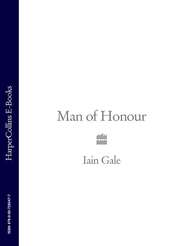По всем вопросам обращайтесь на: info@litportal.ru
(©) 2003-2024.
✖
Alamein: The turning point of World War Two
Настройки чтения
Размер шрифта
Высота строк
Поля
‘With the magnet bombs the Germans have given us?’
‘That’s it. And with Molotov cocktails. The only way to use either of them is to get close enough to a tank to attach the bomb or throw the bottle. What that means is that I’m expected to sacrifice one man for every tank.’
Visconti spoke: ‘You have to admit it’s a reasonable ratio. Montgomery’s only got five hundred tanks. We’ve got one and a half thousand men.’
Mautino grimaced: ‘Ever the realist, Guido.’
‘Cui exhibetis vos servos ad obediendum, servi estis eius.’
‘What?’
‘“When you obey someone like slaves, you become his slaves.” It’s a quote. Romans. The Bible. That’s what’s happened here with us and the Germans.’
‘Don’t exaggerate, Guido.’
Another voice spoke as they were joined by another officer, Captain Maurizio Polini, a tall thin man with a beak of a nose. He brushed sand from his clothes and unwound the scarf from his face then took a swig of precious water from his canteen. ‘Sir. Gentlemen. If you ask me you can forget our problems with the Germans. The desert’s our real enemy. More dangerous than the Brits even.’
Mautino looked at him: ‘Been out again, Maurizio?’
‘On patrol just short of the depression. Couldn’t see a thing. No sign of the British. But then again they come and go as they please. They’re like ghosts.’
Visconti, who had been reading his book looked up: ‘It’s the heat I can’t stand. Forty-three degrees. Non-stop all day. It just saps away your energy. How can we fight like that?’
Mautino spoke: ‘Then at night it’s freezing. Below zero. It’s the devil’s own country. Your Dante would know it.’
Caporale Santini had returned now from directing the new intake to their company commanders and joined in with the officers in the informal manner that they had become used to, particularly in the elite band of brothers that was the Folgore; the other ranks treating their superiors with just enough deference, the officers looking on the men as underprivileged younger siblings.
‘The water’s foul, sir. You must agree. We never have fruit or vegetables. Tinned food and biscuit, that’s it. And they might say it’s for safety, but you know the real reason the rations come up at night? So we can’t see the flies that are already inside them.’
‘It’s an old joke, Luigi.’
‘But seriously, sir. It’s no surprise that we all have dysentery or something worse.’
Ruspoli detected that perhaps they might have gone too far. ‘Think yourself lucky, boys, that we only have the shits. General Ceriana’s got colitis. Did you know that? They say he’s very ill.’
‘Perhaps another camel will wander into the camp. Beats me how the last one got through our minefield.’
‘Didn’t you hear, Carlo? You must have been away on attachment. The British had cleared a path through it in the night. Five metres wide. We had to get the mobile sappers out to re-lay the whole damn thing.’
‘But you ate the camel?’
‘Of course. It made a very tasty ragout. Didn’t we save you any?’
Mautino shook his head. ‘It wouldn’t have kept. But I’m sorry to have missed it. Perhaps another one will come.’
Santini spoke: ‘If it does, sir, then we should really worry. The Brits’ll be right behind it.’
Ruspoli wondered what his family would make of him eating camel. He supposed that at some point one of his ancestors might have done the same. Perhaps on a crusade. They were princes of Florence, a warrior family. But while one ancestor fought with distinction at Lepanto against the Turks another was a poet. It was often the way with Italian soldiers. Fighting and poetry went hand in hand. They had raised a regiment in 1708 to defend the Pope against the Austrians.
He thought of the family home, high on the hilltop in Umbria. Castello Ruspoli with its acres of olive groves and vineyards. What he would give now for a sip of that heavenly wine or just one of those olives. He supposed that his elder brother Costantino was thinking the same thoughts wherever he now was on this damn battlefield. At fifty-one he must have been one of the oldest men in the fighting. But he was still fit. Ruspoli knew where Costantino’s unit was meant to be, but in this war who knew if anything was where they told you it was. As for little brother Carlo, the baby of the family and still in his thirties, well, it was anyone’s guess where he might be, flying his fighter across the desert skies, chasing the RAF.
It was amusing he thought, that the family should be able to trace its origins back to the Scots. To Marius Scotus from somewhere called Galloway, after whom he had been named. His mother of course was French. Pauline Talleyrand, great-great-niece of Napoleon’s foreign secretary. He knew that across the sand a Scottish division and a regiment of Free French were waiting to attack them. Not least, his own mother-in-law, his darling Virginia’s mother, was English. So how could he hate the enemy? So much irony. But then he supposed that was what war was all about. Absurdities, like the camel and Luigi’s spanner.
But they were all Italians here. Mostly men from the north and whatever their families’ origins, high or humble, he respected them. They were his men, all of them. Men like Aroldo Conticello, the baker’s son from Orvieto and Umberto Galati, just nineteen, from Pavia, who liked to wear his hair long. How it infuriated his company commander, thought Ruspoli. Tenente Piccini was forever shouting at Galati to get a haircut but Galati would only ever have a trim.
He would come back and protest: ‘It’s enough, Tenente. Just enough.’ But back he would be sent to the battalion barber only to return too soon and then Piccini would shout again. Ruspoli smiled. Such things were necessary when death stalked a battlefield looking for his next victim. Anything to keep the men amused. Ruspoli was still thinking about them as he walked along the trench. It was eerily quiet. Perhaps there was something in what Mautino had said. This was not right. He’d be happier when that report came through. He heard voices up ahead and stopped. The men were talking. Intrigued, Ruspoli stood and kept silent and listened.
‘So tell me this, Lorenzo. Why are the Germans our allies? My father fought against Rommel himself at Monte Matajur, Caporetto, in the last war. He was wounded. Never recovered. Now that German butcher’s our commander. Where’s the sense in that?’
‘Actually, General Frattini is our commander. And Rommel’s no butcher, Giovanni. He’s an honourable man and a good general.’
‘Frattini? In your dreams, Lorenzo. Don’t get me wrong. He’s one of the good ones, the general. Wasn’t he our commander when we formed? But now even he has to take orders from the Germans.’
Another voice cut in: ‘And what about the Yanks? Some of the guys have got cousins living in the States. What if they end up fighting against them?’
Ruspoli rounded the angle of the trench. On seeing their CO the men stood up and snapped smartly to attention. Ruspoli waved them down: ‘Not here, boys. America hasn’t sent any troops here yet. Don’t worry, you won’t meet an American in this desert let alone fight against one. Besides, do I look worried? You know me. I was born in New York. My brother too. Then we came home to the motherland. How do you think I’d feel killing an American? You might say I am one myself. So shoot me!’
They laughed together. But their smiles turned quickly to looks of concern with the arrival of a runner. Twenty-three-year-old Captain Pietro Bonini saw Ruspoli and saluted, then paused to get his breath back. One of the best in his regiment, thought Ruspoli. A shrewd boy who always had a knack of being in the right place at the right time.
‘Bonini. You have news?’
‘The radio’s down, sir. Nothing. So I ran to Division. I had the good luck to encounter Colonel Guiglia.’
‘The radio wizard?’
‘The very same, Colonel.’
‘That man has a nose for radio signals. He can guess their contents long before our deciphering teams get it. Heaven alone knows how he does it. So what’s up?’
‘There’s going to be an attack.’
‘We know that, Pietro, but when?’
‘Well, Guiglia said, “Mark my words, Capitano. It’s a question of hours, not days!”’
Ruspoli said nothing. He looked into the dark, frightened eyes of one of his men and then turned back to Bonini. ‘You’re quite sure that’s what he said, Pietro?’
‘Certain, Colonel. He said that the British radio activity had really fallen off. There’s something going on in the southern sector. Down here in fact, between Qaret el Homar and Somaket e Gaballa. His men had picked up lots of messages meaning nothing. You know, “X279, I’ll call you back”. That sort of thing. He seemed certain, sir. And he was sweating.’
Ruspoli nodded. He knew exactly what Guiglia meant. The attack was imminent. And there was no doubt in his mind. They would come tonight.
FOUR
6.00 p.m. Some way to the rear of Kidney Ridge Major Tom Bird
The long day wore on. Tom Bird carefully unfolded the letter he had written to his parents two days before and began to draw a picture. It showed two of the men of his unit, both officers, chatting over a boiling stewpot in the style of Jon’s ‘Two Types’ featuring two popular cartoon characters – officers in the desert, one army the other RAF.
In Bird’s picture one of them was wearing a hebron coat, that gloriously non-regulation bit of kit made from cured goatskins, which he himself had not been alone in adopting among the British officers. He was pleased with the drawing. He knew that he had some talent as a draughtsman and had for a while dallied with the idea of art school but architecture was his true métier. He thought that perhaps after the war he might join a good practice or even form his own. A partnership. After the war; that was a good one. Who knew how long it would go on? What Bird knew was that Hitler needed a proper bloody nose. They needed to prove that they weren’t frightened of him, that they could give as good as they got and that was what they were here for. His father had been wounded at Gallipoli in 1915 fighting against Germany’s then ally, Turkey, and had never spoken of his experiences.





